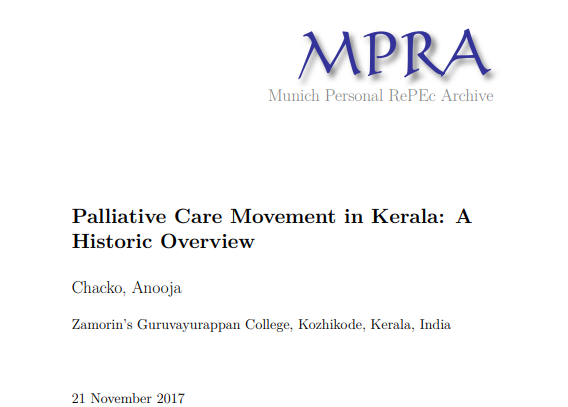Kerala, India: A Regional Community-Based Palliative Care Model
Kerala, India, has made significant strides in palliative care (PC) through its innovative community-driven model, the Neighborhood Network in Palliative Care (NNPC). This initiative, the world's largest community-owned PC network, comprises over 60 units covering a population exceeding 12 million. It seeks to empower local communities to provide comprehensive care for chronically ill and terminally ill patients, reflecting a groundbreaking model of sustainable, community-based healthcare delivery. The approach leverages the concept of primary healthcare outlined in the WHO's Alma-Ata Declaration, integrating community participation at every level.
The NNPC model is rooted in empowering volunteers within local communities through structured training. These volunteers identify the needs of patients and provide support, collaborating with medical professionals to address psychosocial, spiritual, and medical challenges. The network emphasizes home-based care supplemented by outpatient and inpatient services. Its community-driven focus ensures accessibility, affordability, and sustainability by mobilizing local resources and generating funds through small donations. Over time, NNPC has effectively replaced hierarchical, doctor-led systems with community-owned initiatives.
A hallmark of NNPC is its participatory ethos, wherein volunteers actively contribute to planning, evaluating, and improving services. This engagement fosters a sense of ownership and accountability within communities, enabling them to address diverse issues such as financial challenges, social isolation, and awareness-building. The network operates with over 4,000 volunteers, 36 doctors, and 60 nurses, serving approximately 5,000 patients at any given time. Its impact extends to previously underserved areas, offering PC for non-malignant conditions and involving local governments in care provision.
The success of the NNPC underscores the importance of tailoring healthcare models to socio-economic and cultural contexts. It highlights the value of integrating PC with broader development efforts such as poverty alleviation and access to basic services like clean water and education. The initiative demonstrates that community participation can bridge gaps in healthcare accessibility, particularly in resource-poor settings.
The Kerala model offers critical lessons for developing PC services globally. It showcases how local communities, when empowered and equipped, can take collective responsibility for long-term care and support. NNPC's achievements inspire further exploration of community-driven approaches to healthcare, emphasizing that sustainable solutions must align with local needs, priorities, and resources.



Comments
Post a Comment